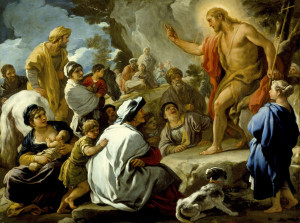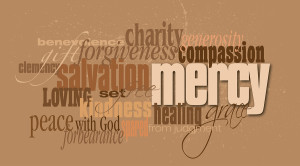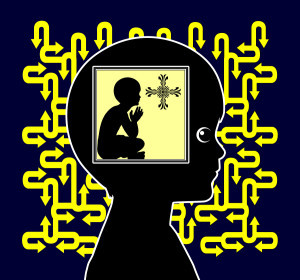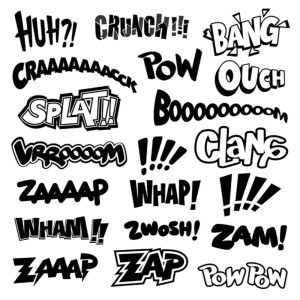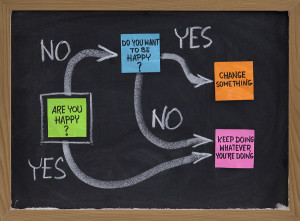Lin Wilder's Blog, page 54
January 4, 2016
Wonder and Faith
Wonder and faith- can the two be separated? Wonder: the uncorrupted sense of awe, delight, surprise, astonishment…something completely and totally inspired by something other, outside self, worthy of adoration. This is where faith begins, I think; it’s absence where faith begins to die. And I cannot help but speculate about the loss of what Webster calls ‘an uncorrupted sense of awe…worthy of adoration.’ When do we lose the capacity and why?
There was a time when I had Fitzgerald’s words memorized, words which perfectly expressed truth to my early 20-something atheist’s heart, immersed and lost in the sea of the thoughts and beliefs of others.
Most of the big shore places were closed now and there were hardly any lights except the shadowy, moving glow of a ferryboat across the Sound. And as the moon rose higher the inessential houses began to melt away until gradually I became aware of the old island here that flowered once for Dutch sailors’ eyes—a fresh, green breast of the new world. Its vanished trees, the trees that had made way for Gatsby’s house, had once pandered in whispers to the last and greatest of all human dreams; for a transitory enchanted moment man must have held his breath in the presence of this continent, compelled into an æsthetic contemplation he neither understood nor desired, face to face for the last time in history with something commensurate to his capacity for wonder…
Only the italics are mine-the words are F. Scott Fitzgerald’s on the last page of his novel, The Great Gatsby. There are 3 more paragraphs and a last sentence which continues to be dissected by critics as they opine about Fitzgerald’s meaning. But it was this sentence: “face to face for the last time in history with something commensurate to his capacity for wonder..” that stayed in my heart and ended the book in my memory.
With ease I can return to the young girl I once was in search of wisdom; hungry to learn from those believed to have the answers. As I re-read the words on this Epiphany morning all these years later, again I am drawn by the lyrical, lush-almost profligate beauty of Fitzgerald’s prose. But profoundly aware of the despair implicit in his words.
For many of us, perhaps most, the erosion is slow and inexorable. Maybe a parent incapable of bearing the responsibility of raising a child or a priest or minister who disappoints even harms. We ‘grow up’, accepting cynicism and the stuff of childhood like superstition and miracles behind. Leaving in its stead the shattering despair expressed by Fitzgerald about Gatsby and our world.
I think about wise men searching on this Epiphany Sunday of the brand new year of 2016. About the universality and timelessness expressed by this journey of three men from the east. Educated, wealthy, and wise. Sufficiently wise enough to recognize a sign, a supernatural sign, understand albeit only in a most rudimentary way. Perhaps one or two had explained why they planned to leave to follow this star. This star, pregnant with portent. We can readily imagine the reaction of friends of wives. Certainly confusion, perhaps ridicule, even anger. But unexpressed was the fear. What if this is real? Always there is a journey, always a risk, frequently our loved ones cannot understand.
And He called a child to Himself and set him before them, and said, “Truly I say to you, unless you are converted and become like children, you will not enter the kingdom of heaven. “Whoever then humbles himself as this child, he is the greatest in the kingdom of heaven.…
The post Wonder and Faith appeared first on Lin Wilder.




















December 28, 2015
Revolutions: Seen and Unseen
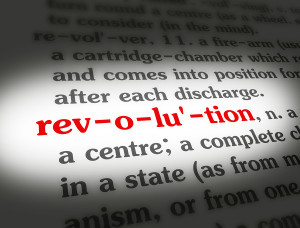
Revolution. We think of uprisings, upheavals, often political like the American and French Revolutions. Of the earth’s rotation around the sun or of Mary’s reply to Elizabeth’s “And why am I so favored that the mother of our Lord should come to me?” Not so much. Or never.
December twenty-first was the winter solstice- the beginning of winter. The reading for that Wednesday in the Christian Liturgy was from the visitation. Immediately upon giving her fiat to the angel Gabriel, the future mother of Jesus sets off in haste for the hill country in Judea, a journey of between eighty to one -hundred miles. A very long way on foot or even in a caravan if that is how she traveled; a four to five day trip, most likely.
At that time Mary got ready and hurried to a town in the hill country of Judea, where she entered Zechariah’s home and greeted Elizabeth. When Elizabeth heard Mary’s greeting, the baby leaped in her womb, and Elizabeth was filled with the Holy Spirit. In a loud voice she exclaimed: “Blessed are you among women, and blessed is the child you will bear! But why am I so favored, that the mother of my Lord should come to me? As soon as the sound of your greeting reached my ears, the baby in my womb leaped for joy. Blessed is she who has believed that the Lord would fulfill his promises to her!”
We were at the daily mass at the Monastery of the Risen Christ in San Luis Obispo, California and the last thing I was thinking of was revolution. Until Benedictine monk, Father Coffey began his homily. He spoke of the solstice that had occurred around midnight as a hardly discernible shift in the magnetic pole of the earth. A shift which would, over the next six months reverse as the solar path we travel brings us closer to the sun and longer days. But at the solstices, the observed descent and ascent of the sun stops. The word solstice is derived from Latin and was understood as the sun (sol) standing still (sistere.) Our elliptical solar path is composed of rotations and revolutions which bring us closer to and farther from the sun as viewed from the North or South Poles. Revolutions which are not perceived by most of us, especially as they occur in the depth of night.
Mary’s reply to Elizabeth was also a revolution. Her Magnificat , followed Hannah’s closely. Hannah, the barren woman who bore Samuel.
My soul proclaims the greatness of the Lord,
my spirit rejoices in God my Savior
for he has looked with favor on his lowly servant.
From this day all generations will call me blessed:
the Almighty has done great things for me,
and holy is his Name.
He has mercy on those who fear him
in every generation.
He has shown the strength of his arm,
he has scattered the proud in their conceit.
He has cast down the mighty from their thrones,
and has lifted up the lowly.
He has filled the hungry with good things,
and the rich he has sent away empty.
He has come to the help of his servant Israel
for he remembered his promise of mercy,
the promise he made to our fathers,
to Abraham and his children forever.
I know it well- reciting it each day, I have pondered her words on countless occasions. But the prayer as a revolutionary one?
And yet her meaning is clear, the words stark in their precision: ‘casting down the mighty’, ‘scattering the proud’ and ‘sending away the rich empty-handed’. No strife, contention, weapons. Just silence. Amidst the noise and clamor. Today, God entered the world. Choosing to come as a helpless infant.
A revolution, indeed. Changing everything for all time but not discernible to so many.
“Into this world, this demented inn, in which there is absolutely no room for him at all, Christ has come uninvited.” Thomas Merton
O Holy Night!
The post Revolutions: Seen and Unseen appeared first on Lin Wilder.




















December 21, 2015
No Sacrifice or Oblation

In these few remaining days of Advent, I read and re-read the words of St. Paul about the futility of sacrifice and oblation or offering to God. First, he quotes the words of Christ himself:
You who wanted no sacrifice or oblation,
prepared a body for me.
You took no pleasure in holocausts or sacrifices for sin;
then I said,…
And then Paul explains them, carefully. Necessarily, because neither the words nor the concept make any sense in this world filled with extremes. Where we see zealots dying for their faith and athletes insisting that extreme workouts are essential while entrepreneurs boast about their 90 hour work weeks. The message is consistent and clear; nothing is achieved without sacrifice. And Christmas is all about oblation-offerings, the right and best present for our loved ones.
Notice that he says first: You did not want what the Law lays down as the things to be offered, that is: the sacrifices, the oblations, the holocausts and the sacrifices for sin, and you took no pleasure in them; and then he says: Here I am! I am coming to obey your will. He is abolishing the first sort to replace it with the second. And this will was for us to be made holy by the offering of his body made once and for all by Jesus Christ.
Is there anything more difficult? Is there anything more impossible?
Excited about the approach of this season I love, I had great plans for this Advent. Many more hours of holy reading. And time spent merely pondering her: Mary, this most extraordinary girl, faced with the impossible, the absurd, merely replies ‘Behold the handmaiden of the Lord, be it done to me according to thy word.’ But now, only five days are left and my efforts have been paltry, embarrassing. So often this happens, I suspect not only to me.
And so the Apostle’s words are comforting on this fourth Sunday of Advent. Yet, more than consoling, when I read them for the fifth and sixth time, it is as if Paul is saying, “Don’t you get it?” “Don’t you see that even if you had spent all my waking time during the 960 hours of Advent, you’re asking the wrong question? Would the Lord love me more than when I am at my worst? Lazy, dull, self-absorbed, wholly unlovable?
Absurd, impossible. Such is our faith.
….or since in the wisdom of God the world through its wisdom did not come to know God, God was well-pleased through the foolishness of the message preached to save those who believe. For indeed Jews ask for signs and Greeks search for wisdom; but we preach Christ crucified, to Jews a stumbling block and to Gentiles foolishness,…
The post No Sacrifice or Oblation appeared first on Lin Wilder.




















December 14, 2015
What Should We Do?
“What should we do?
He said to them in reply,
“Whoever has two cloaks
should share with the person who has none.
And whoever has food should do likewise….
Now the people were filled with expectation,
and all were asking in their hearts
whether John might be the Christ.
John answered them all, saying,
“I am baptizing you with water,
but one mightier than I is coming…”
We get confused, don’t we when we try to discriminate among all the conflicting voices clamoring for our attention? Political candidates claim unique access to truth while expressing opinions which sound distressingly similar to one another. Words like change, transparency, growth, turnaround and integrity fade away the moment we hear them. We have become immune. We too speak words which are disconnected from their meaning. Our expectations at best, are flat. Or worse, absent.
But John the Baptist understood a word…one Word. Exploding into human history in a particular place at a specific time, the Word. John knew that his was the voice preparing for the Word, prepared before birth to hear, recognize and proclaim. But even two thousand years ago, people had trouble distinguishing between the voice and word.
Intriguing to ponder- the separation between word and voice and meaning.
While praying the Office this morning I meditated on an excerpt of St. Augustine’s sermon on this Gospel passage on that very subject.
Take away the word, the meaning, and what is the voice? Where there is no understanding, there is only a meaningless sound. The voice without the word strikes the ear but does not build up the heart…
In my search for a way to let this message reach you, so that the word already in my heart may find place also in yours, I use my voice to speak to you. The sound of my voice brings the meaning of the word to you and then passes away. The word which the sound has brought to you is now in your heart, and yet it is still also in mine.
When the word has been conveyed to you, does not the sound seem to say: The word ought to grow, and I should diminish? The sound of the voice has made itself heard in the service of the word, and has gone away, as though it were saying: My joy is complete. Let us hold on to the word; we must not lose the word conceived inwardly in our hearts.
Do you need proof that the voice passes away but the divine Word remains? Where is John’s baptism today? It served its purpose, and it went away. Now it is Christ’s baptism that we celebrate. It is in Christ that we all believe; we hope for salvation in him. This is the message the voice cried out.
Because it is hard to distinguish word from voice, even John himself was thought to be the Christ. The voice was thought to be the word. But the voice acknowledged what it was, anxious not to give offence to the word. I am not the Christ, he said, nor Elijah, nor the prophet. And the question came: Who are you, then? He replied: I am the voice of one crying in the wilderness: Prepare the way for the Lord. The voice of one crying in the wilderness is the voice of one breaking the silence. Prepare the way for the Lord, he says, as though he were saying: “I speak out in order to lead him into your hearts, but he does not choose to come where I lead him unless you prepare the way for him.”
What does prepare the way mean, if not “pray well”? What does prepare the way mean, if not “be humble in your thoughts”? We should take our lesson from John the Baptist. He is thought to be the Christ; he declares he is not what they think. He does not take advantage of their mistake to further his own glory…
John’s was the kind of calling I feared as a new Christian; the fear that kept me from inviting Jesus completely into my heart and soul.
What if I am asked to give up everything?
What if I am asked to live out my life alone?
What if I am asked to subject myself to persecutions and to unnamed tortures?
Intellectually, I understand that one so filled with the holy spirit while still an unborn babe that he jumped with the joy of infused grace at the approach of Jesus in the womb of Mary, has access to wisdom that I do not.
But when I think of the man, John the Baptist, I cannot get past living in the desert.. alone, eating locusts and honey, a man seemingly so consumed by his mission that he is aware of nothing else.
A man with the courage to declare unlawful the marriage of the most powerful man in the land and to do so publicly.
I am unable to imagine, visualize, even to grasp a faith like his, devotion and trust like his. The Renaissance masters felt the same way, I think. They painted and sculpted his face as tortured and ravaged.
But could they and I be completely wrong?
Could his have been one filled with the glory of the Word; peaceful, even beatific?
The post What Should We Do? appeared first on Lin Wilder.




















December 7, 2015
A Year of Mercy?
Young parents of a six month old baby murder fourteen and injure twenty-two. Eight men, an ISIS kamikaze terror squad, dressed in suicide belts and armed with AK 47’s mow down over one hundred thirty and injure 350 at the Bataclan Concert Hall in Paris. To date, there have been 298 murderous attacks by religious extremists in this year which has not yet ended. Why a year of mercy? How does a merciful response make any sense in the face of untrammeled hatred?
How do we deal with a new parent who pledges public allegiance to ISIS following the birth of his child? Who then murders fourteen people, among whom were his friends? Pope Francis, that lightning rod for debate among the orthodox Catholic world declares mercy, an entire year of it. On Tuesday, December 8, the Feast of the Immaculate Conception of Mary, an Extraordinary Jubliee will begin.
‘I have decided to announce an Extraordinary Jubilee which has at its centre the mercy of God. It will be a Holy Year of Mercy. We want to live in the light of the word of the Lord: “Be merciful, even as your Father is merciful” (cf. Lk 6:36). And this especially applies to confessors! So much mercy!
This Holy Year will commence on the next Solemnity of the Immaculate Conception and will conclude on Sunday, 20 November 2016, the Solemnity of Our Lord Jesus Christ, King of the Universe and living face of the Father’s mercy.’
There are few among the seven or eight billion souls on this beleaguered planet who are not asking, ‘what is wrong with this world?’ Violence, hopelessness, famine, gut wrenching poverty, mass shootings are only a beginning of the threats to the beauty of creation and the future of humanity.
The question is not a new one. In 1910, the London Times invited several famous authors to submit essays on the subject, “What is wrong with the world?” Renowned writer and converted atheist GK Chesterton’s reply took the form of a letter:
“Dear Sirs,
I am.
Sincerely yours,
GK Chesterton“
Many writers of late have quoted the interaction. Curious, while researching the anecdote attributed to Chesterton, I found that he had written a book with that title, What Is Wrong With The World? Available for free on Google, this is classical Chesterton; acerbic, witty, and painfully observant. Chesterton wrote in an age when the erosion of language and meaning was just beginning. Politically correct language had not yet hit early twentieth century England. He writes these carefully chosen words, tragically far more descriptive of the 21st century than of his own:
…But certainly there is no force so hard to fight as the force which it is easy to conquer; the force that always yields and then returns. Such is the force of a great impersonal prejudice, such as possesses the modern world on so many points. Against this there is no weapon at all except a rigid and steely sanity, a resolution not to listen to fads, and not to be infected by diseases. In short, the rational human faith must armour itself with prejudice in an age of prejudices, just as it armoured itself with logic in an age of logic. But the difference between the two mental methods is marked and unmistakable. The essential of the difference is this: that prejudices are divergent, whereas creeds are always in collision. Believers bump into each other; whereas bigots keep out of each other’s way. A creed is a collective thing, and even its sins are sociable. A prejudice is a private thing, and even its tolerance is misanthropic. So it is with our existing opinions. Genuine controversy, fair cut and thrust before a common audience, has become in our special epoch very rare. For the sincere controversialist is above all things a good listener. The really burning enthusiast never interrupts; he listens to the enemy’s arguments as eagerly as a spy would listen to the enemy’s arrangements. But if you attempt an actual argument with a modern paper of opposite politics, you will find that no medium is admitted between violence and evasion….The only logical cure for all this is the assertion of a human ideal. In dealing with this, I will try to be as little transcendental as is consistent with reason; it is enough to say that unless we have some doctrine of a divine man, all abuses may be excused, since evolution may turn them into uses. It will be easy for the scientific plutocrat to maintain that humanity will adapt itself to any conditions which we now consider evil. The old tyrants invoked the past ; the new tyrants will invoke the future…
Could we locate a finer description of the state of discourse in current culture? And how likely is it, do we think, that in this increasingly polarized prejudicial -yes- prejudicial- culture, we can find solutions to the loathing that a few young Muslims feel for the west? More bombs? More ‘collateral damage’?
Mercy, indeed. ‘Merciful like the Father.‘
The post A Year of Mercy? appeared first on Lin Wilder.




















November 30, 2015
Four Weeks Before Christmas-Advent
For much of my life, the four weeks before Christmas were jam packed with parties, mostly work related and therefore obligatory, shopping excursions to unearth novel gifts for people who did not need them. And making plans for a much needed vacation when the week of Christmas and New Year’s finally arrived. The holiday held no religious significance to me. When friends tell me they don’t want to attend church because no church feels right to him or her, I understand. There was a time I felt the same way and liberally quoted Nietzsche’s acerbic comment, “God is dead. He choked to death on theology.” But now I need theology as much as the air I breathe.
Advent?
If I had been taught about Advent during the Episcopalian faith I walked away from as teenager, those lessons did not stick. Now, close to twenty years after conversion to Catholic Christianity, these four weeks have become precious.
Why?
We converts become emotional when attempting to explain to cradle Catholics what it feels like to belong…after years of searching for a faith that reeks of truth. One with rules. Not suggestions. Even after nineteen years, I need to reign in the emotion to speak and write coherently. Because when I consider my life without faith and compare it to my life with faith, it feels very much like the Zen maxim: Before enlightenment, chopping wood and carrying water; after enlightenment, chopping wood and carrying water. Everything changes and yet nothing does.
In a conversation with a good friend the other day, I paraphrased CS Lewis while explaining why I thought we each need church, religion, an association with some religious institution. Once again, I made use of the image of battle, of this deepening sense that we are engaged in combat. Spiritual combat for which the gains or losses mean no less than everything. Lewis learned what each of us has upon rejecting the faith of our fathers. We lose our way, get distracted, make stupid, silly choices.
“In a way I quite understand why some people are put off by Theology. I remember once when I had been giving a talk to the R.A.F., an old, hard-bitten offi cer got up and said, “I’ve no use for all that stuff. But, mind you, I’m a religious man too. I know there’s a God. I’ve felt Him: out alone in the desert at night: the tremendous mystery. And that’s just why I don’t believe all your neat little dogmas and formulas about Him. To anyone who’s met the real thing they all seem so petty and pedantic and unreal!”
Theology is like a map. (Italics are mine.) Merely learning and thinking about the Christian doctrines, if you stop there, is less real and less exciting than the sort of thing my friend got in the desert. Doctrines are not God: they are only a kind of map. But that map is based on the experience of hundreds of people who really were in touch with God—experiences compared with which any thrills or pious feelings you and I are likely to get on our own are very elementary and very confused. And secondly, if you want to get any further, you must use the map. You see, what happened to that man in the desert may have been real, and was certainly exciting but nothing comes of it. It leads nowhere. There is nothing to do about it. In fact, that is just why a vague religion—all about feeling God in nature, and so on—is so attractive. It is all thrills and no work; like watching the waves from the beach. But you will not get to Newfoundland by studying the Atlantic that way, and you will not get eternal life by simply feeling the presence of God in fl owers or music. Neither will you get anywhere by looking at maps without going to sea. Nor will you be very safe if you go to sea without a map.
In other words, Theology is practical: especially now. In the old days, when there was less education and discussion, perhaps it was possible to get on with a very few simple ideas about God. But it is not so now. Everyone reads, everyone hears things discussed. Consequently, if you do not listen to Theology, that will not mean that you have no ideas about God. It will mean that you have a lot of wrong ones—bad, muddled, out-of-date ideas. For a great many of the ideas about God which are trotted out as novvelties today are simply the ones which real Theologians tried centuries ago and rejected.”
Advent is a month when I can dust off Lenten practices like sacred reading, lectio divina, spend more time reflecting on her, this remarkable woman, the mother of God. Addressed as ‘full of grace’ by the Angel Gabriel. Ponder the gossip, this teen-aged girl endured, a pale prelude of the suffering she would witness at the foot of his cross. Ponder the truth of Christ’s love for me, that my sins bother me far more than they do him.
The post Four Weeks Before Christmas-Advent appeared first on Lin Wilder.




















November 23, 2015
What Is It About Dogs?

What is it it about dogs? Some call it the ‘cute factor’, others talk about the unconditional nature of their love, while still others maintain that their dog (s) is the best friend they have ever had.
If you have been reading these posts for any time at all then you know that I am addicted to Dobermans. Each of my books features at least one Dobie boy. The latest one costars three Dobes. So then why, when following my husband John into the Reno Petco this past Saturday morning, did I fall in love with Seymour, a chocolate lab mix? And beg John to let us take him home so that we can become a pack of four once again?
Once I could stop crying long enough to focus on dog web sites following the sudden death of my beloved Doberman, I began to lurk on rescue sites. Mostly Doberman rescue sites but sometimes all dogs rescue sites. Over fourteen months later, I have begun to look at these abandoned, homeless dogs in much the same way as I do homeless people. Fully aware that some may find the statement offensive, I say it anyway. Here’s why.
The vastness of the need is crushing.
Only one in ten dogs born will find a permanent home.
But homeless animals outnumber homeless people by five to one.
About four million dogs enter shelters each year and over a million are euthanized annually.
For a number of years, my husband and I worked with several homeless agencies in Reno. And learned from many of the homeless themselves that many prefer the street to the shelters for a variety of reasons. And heard that it was almost impossible to be hungry in Reno. There were too many churches and agencies intent on assuring that no one who wants to eat will go hungry.
Like all huge subjects, that of homelessness is complex. But my experience with those who run the shelters and conversations with some homeless men revealed a fact that we like to overlook politically and culturally. Many people who live on the street do so because they want their drugs and or their alcohol. The shelters do not allow drugs or alcohol ergo these people choose the street.
These dogs have no such options. They are bred, frequently over bred or adopted because of the cute factor and then abandoned because of a myriad of reasons. Each one tears out the heart and stomps on it. Reasons like these: “We moved.” “He got too old.” “We don’t have time for him.” And on and on. I decided that I could no longer take a new puppy into our home, it feels morally wrong- even an adorable Dobie boy.
Over time I began to donate money to mostly Dobie rescue sites. And then to open up my heart to any of the wide variety of these amazing creatures who are in desperate need of a forever home. So this morning, when my husband said I could call to see if Seymour is still available, I jumped on it. I am waiting to hear back but it is Sunday so maybe I’ll not get a call until tomorrow, Monday.
Seymour looks nothing like my beloved Dobie. In fact, he is close to a polar opposite of the elegant, lean long-legged Doberman. He is stocky with short legs, a chunky torso and floppy ears. If he does join our pack, this one dog leaves many hundreds of thousands of deserving dogs looking for a home. But if more of us look at adopting we can empty these shelters. Maybe.
The post What Is It About Dogs? appeared first on Lin Wilder.




















November 16, 2015
Go To Church
“Go to church.” I surprised myself when I said it.
My friend had been quietly explaining her deep concern about her experience with public school. After years of home schooling her children, she and her husband had decided the kids needed socialization so they enrolled their children in school. Anxiety written all over her face, she said the curriculum no longer uses ‘BC” and “AD” as historical measures, they use ‘CE ‘ and ‘BCE ‘ (common era, before common era.) “We’re a judeo-christian culture” she exclaimed, “How can this happen in American schools?”
She explained further. Each day of the new school begins with a television assignment. The kids are to to watch and take notes on ten minutes of CNN news. Her older boy had told her about his first day, memorable because that first day of CNN news had been entirely about the lifestyle of homosexuals.
My admonition, ‘go to church’ had been in response to her statement she she felt powerless, that there was nothing she could do. But since our conversation happened during a group dinner, we had no time to talk further. And so I sent her an email. A very long email explaining things I have neither thought nor talked about for many years. And over the last few days, I have pondered why I did what I have never done before. Particularly to a person whom I know has little interest in church nor religion. Why would I tell her that I believed we were engaged in a spiritual battle? That we were fighting a war? In an email? And tell her that she could not fight this battle alone?
Long ago when I converted to Christian Catholicism while living on the east coast, I learned the phrase, “God put her in my heart” or “The holy spirit placed this in my heart”from new devoutly religious Protestant friends. When this happened, they taught me, you know it and you must act. So when this recent conversation echoed in my mind in the middle of the night and during idle moments, I decided to write the email. The conversation had been placed in my heart.
Maybe because autumn has always evoked a sense of melancholy or because the Christian liturgy is ending for the year and now filled with apocalyptic readings , or perhaps it’s merely age, thoughts of the end, of death show up, unbidden. The warning by Christ to “read the signs” rings more loudly this year. And the ‘signs’ appear more portentous.
This past Halloween, the first American Luciferian Church opened in Texas- the little town of Spring, a suburb of Houston. Lucifer, the Angel of light, he who was thrown out of heaven. The website, in clever use of our cultural norms, so porous that anything can enter, describes the mission in the most innocuous of ways. We are ‘nice people….merely wanting to make use of freedom of religion to enlighten and teach. The word devil appears nowhere on the site.
While watching the Democratic debate last night, I became aware that abortion on demand and paid for by our taxes is considered a basic right by the Democrat Party, is inherent in the platform. Hillary Clinton did not say it that way, of course. She knows better. Rather, she speaks of Planned Parenthood as a reasonable partner of the government. The organization presents itself as a site for sex education but in the last three years, over one million abortions have been performed at Planned Parenthood. Each of us learned as kids to use words which veiled their real meaning-euphemisms. Words which make something unacceptable seem reasonable, acceptable. ‘I wasn’t lying, I just didn’t tell you’ or ‘It’s not stealing, they will never notice.’ In a former career in academic medicine, we became proficient. Fear of suit for wrongful discharge led to creative ways to get rid of poor performers.Lay-offs became RIF’s, reduction in force, re-engineering invariably led to lay-offs. For us managers, it was more palatable to think in terms of phrases rather than people, just like calling babies fetuses or the murder of innocents collateral damage.
The recently released movie Spotlight is expected to reap Oscar nominations for the actors and to attract a record number of viewers. The film tells the story about a Boston Globe journalist’s Pulitzer Prize winning series on then Bernard Cardinal Law and the Boston Catholic Church for their protection of priest pedophiles. I joined the church in Massachusetts during those years and witnessed what appeared to me to be heartbreaking vicious and unrelenting attacks against Law and the church in the print and television media. Cardinal Law was demonized. Any and all attempts to explain what and why he did what he did were ridiculed and trivialized. What fascinated me then, as now, was the magnitude of the rage, the content of the vitriol- ‘this will be the final nail in the Catholic Church,’ ‘this Law is a monster–he should be in jail’. The fury was directed at him personally rather than the actual abusers.
Our culture clearly believes that homosexuality should be ‘taught’ to our kids; among those homosexuals there will likely be a small number of them who are attracted to kids. Isn’t there an obvious disconnect here?
None of these things is in and of itself, new. Covens and devotion to Satan have existed for centuries, women have aborted unwanted babies since our beginning. There is nothing novel about same sex attraction or attacks against the church. Emotional manipulation is at the heart of any and all persuasion. What feels new to me is that none of these things is hidden, they are displayed by leaders as acceptable as the norm, worse, the truth.
When my friend said that her concern was that her children would not be taught truth in public school, my suggestion was not intended as a panacea, far from it. Churches are filled with people-sinners. That is why they are there. Homosexuals, abortionists, thiefs, liars, cheats, adulterers, fornicators, we’re all there. We are not alone in our sickness. We don’t pretend we’re not sick because we know where to find the physician.
The post Go To Church appeared first on Lin Wilder.




















November 9, 2015
The Battle Over Health
Health; a word which should not invoke military imagery like war or battle. And yet the lines have been drawn with stakes which have seldom been greater. Many decades ago the wars began, the war against heart disease, the war against cancer, naming only a few. With the introduction of Medicare during the Johnson administration, the United States government entered the world of medicine with guns blazing. Each successive President added his personal touch; Carter empowering the originally weak and ineffective Federal Drug Administration, Reagan passing the Bayh-Dole Act coupled with successive massive infusions of big money to fund research, the formerly cottage industry of medicine became big business. Very big business.
“The twentieth century saw the professions of law and medicine enjoying an extended alliance where medical decision-making was awarded with more and more autonomy by the state and federal governments, such that the profession of medicine was infused with more self-rule than had ever before been granted. This new alliance was deserving of a new concept and new language by the sociologists studying the dizzying speed with which medicine was gaining political and cultural power. The word profession describes a group of individuals whose knowledge, education, vocabulary, decision-making and yes, even poor outcomes, could be evaluated only by one another. Individuals who lacked specialized training could not reasonably judge the practice of the physician. Doctors were individuals who were above the common law because their specialized knowledge and expertise placed them outside of the usual human foibles of greed, immorality, corruption and ignorance; only other doctors were permitted to testify for or against physicians accused of malpractice or negligence. Such was the agreement between medicine and law for much of the last century.”
These words were written by a fictional character in one of my novels. But upon reading about the brouhaha raised by famed quarterback Tom Brady claims that soft drinks like coke and fast foods were poison and Brady’s statements that it was a holistic practitioner rather than a physician who helped heal his ACL injury, I wonder if things may be heating up. And if what has been formerly looked upon as ‘alternative’ or ‘non-traditional’ health care may come to be seen as merely common sense.
“I had doctors with the highest and best education in our country tell me that I wouldn’t be able to play football again, that I would need multiple surgeries on my knee for my staph infection, that I would need a new ALC, a new MCL, and that I wouldn’t be able to play with my kids when I’m older….I’ve chosen a different approach, and that’s what I’m providing to other athletes.”
Admittedly I am biased in favor of Tom Brady. Prior to his becoming quarterback for the Patriots, football was of no interest to me. But thirteen years ago, on a snowy night when the Patriots were losing to the San Diego Chargers, the camera illuminated his young face and revealed a determination, grit and an intensity I’d never seen before…serving as a metaphor for all things which seem impossible. I could almost read the words he was saying to himself…”No matter what this takes, or what is required by me, we WILL win this game”. And they did.
Brady’s alliance with a holistic practitioner named Alex Guerrero, a quack, liar and charlatan if you believe the detractors or if you weigh in on the side of Brady, perhaps a few changes can help each of us feel better. Maybe a lot better. Isn’t it time to consider what healthy people do to maintain and or restore their health as opposed to the invasive and chemical alternatives?
The post The Battle Over Health appeared first on Lin Wilder.




















November 2, 2015
Happiness: Feeling or Decision?
“So, how exactly, do you decide to be happy?” My friend looked bemusedly at me as she replied to my statement that I thought happiness was a decision we made.
“LOOK at that tree!” I exclaimed loudly and with vehemence, knowing that my reply to her question required more than a little explanation.
My psychologist husband entered the fray by asking “Lin, when was one of your happiest times in your life?”
Silent for a moment, I thought about his question and reviewed major events in my life; hallmarks of ‘happy’ events asking myself if there were any times I could recall as being especially salient of happy times- graduations, becoming a Catholic, our marriage and then repeated what I’d said to our friend earlier but with different words. Happiness is a state of being achieved through our will, like faith, like love.
But for many, happiness is elusive. For months, years , for some, their entire life. All seven billion- of is it up to eight by now- souls on this planet desire happiness. That’s why there are books, songs, blogs and experts, all who claim possession of the key to happiness.
One of the difficulties about happiness is that it’s definitional. Happiness is unique to each of us because, by definition, each of is solitary, exclusive, an individual, with widely varying interests, skills, goals and desires: the desire for happiness is however, universal: We each want to be happy. We even wrote it into our Constitution: The ‘unalienable right to the pursuit of happiness,” Jefferson wrote, as if happiness were an object we must chase, hunt, implying perhaps, an elusive goal.
The strong belief I have that happiness is a decision does not preclude any of the varying emotional states that wander in and out of my psyche; rather happiness is a constant, a grounding, an undercurrent on which emotions appear and disappear, like the clouds in the sky. A metaphor I learned decades ago during my Buddhist phase. One of the Buddhists wrote sage advice about the ‘monkey chatter’ in our brains. The constant noise which precludes peace and happiness: “We can do nothing about any of the emotions and thoughts which wander into our minds. But we do not need to offer them a seat.” I am paraphrasing the quote read many years ago in Tricyle Magazine but not those crucial last nine words worth repeating: We do not need to offer them a seat.
One of the obstacles to achieving a state of happiness is the belief that happiness is a feeling. A confusion which permeates two other decisions which are often confused with feelings for many of us: Love and Faith.
That non sequitur reply to my friend’s question encompasses is the key to happiness taught to me by a man earnestly in pursuit of it. A chase which defined him, causing him to walk away from his ordination as a Catholic priest. And search for his own happiness by teaching young students like me what he was learning about happiness. Action precedes the emotion.
Frequently quoting Santayana’s short poem or warning as it seemed to me back then,
Most people live their lives in the basement of a three story house,
my teacher taught me and invaluable lesson about happiness at a time in my life of great, deep and painful unhappiness and it is this.
If we want to be happy, then act as if you are, take time to… LOOK at that tree!” Develop a sense of the other…Over time, the feeling will come, the knowledge that yes, I am happy… exactly like faith and love.
Although his admonition was metaphorical, there were many times during that phase of my life when nothing was clear and when I had no ground to walk on, no clue as to how I wanted to spend my life, only vague resolutions, that I would pull over to the side of the road and do exactly that. I would LOOK at that tree. And the intensity of the monkey chatter starts to fade. Over time, disappears.
The post Happiness: Feeling or Decision? appeared first on Lin Wilder.


























